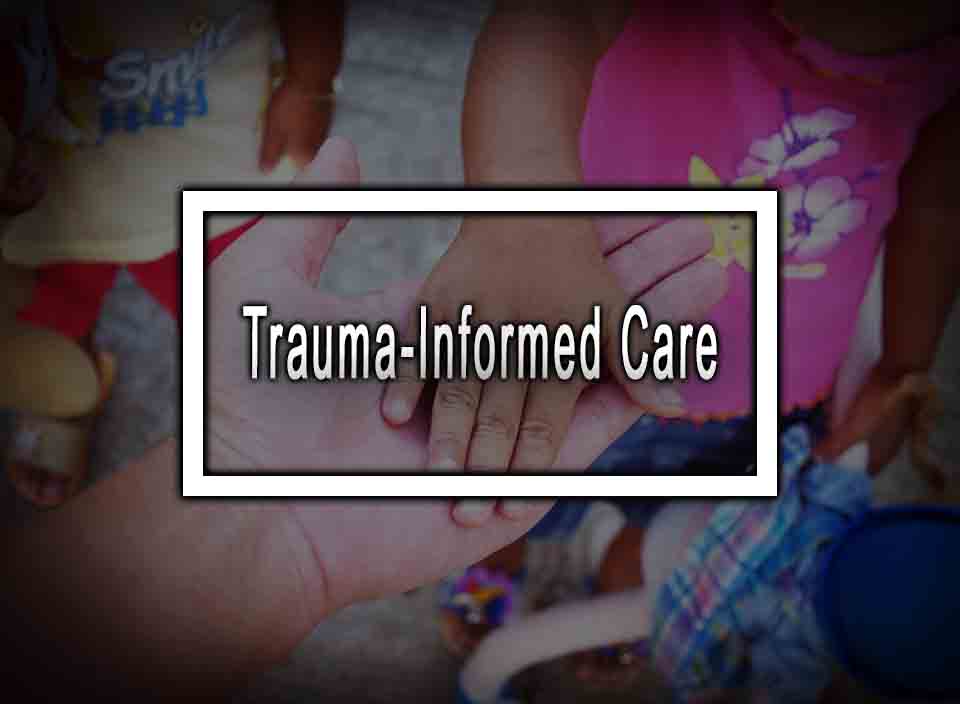Here Are Some Trauma Informed Care
Trauma-Informed Care is one of the most important approaches to support every individual in the fight against trauma. It is a method that offers a holistic approach to care that acknowledges the effects of adversity and trauma while emphasizing empathetic interactions between providers and patients. This approach has influenced different forms of care, from the treatment of physical and mental health problems like depression, and anxiety among others. This article aims to provide a comprehensive insight into traumatic care and how it has influenced healthcare practices.
Trauma-Informed Care Defined
Trauma-Informed Care (TIC) involves understanding, recognizing, and responding to the effects of trauma on both the client and the service provider. TIC helps to create an atmosphere of safety, trust, and respect between the provider and the client while exploring knowledge about trauma and developing effective strategies for healing. Trauma can be defined as an event(s) or experience(s) that fall beyond our control and produce adverse effects on our psychological, physical, emotional, and social well-being. Trauma may include abuse, neglect, violence, assault, war, illness, and other life-altering events. The outcome of these experiences can affect an individual in various ways, including mental illness, addiction, or specific health conditions.
Importance of Trauma-Informed Care
The need for trauma-informed care arises from the understanding that trauma is prevalent in many areas of society, and its repercussions are long-lasting, both physically and mentally. According to the World Health Organization, an estimated 1 billion children experience violence each year worldwide, and one in four women experience physical or sexual abuse from intimate partners. Trauma-Informed Care is necessary because it helps individuals and providers interact in an environment that acknowledges trauma’s presence.
The TIC model has gained prominence in the healthcare setting as traumatic events and experiences can negatively impact one’s physical and emotional well-being. Many military veterans who have experienced combat and violence or people living in high-conflict situations often develop PTSD (Post Traumatic Stress Disorder) or other mental conditions. The traditional healthcare system is structured to address the biomedical aspects of illness, with little emphasis on emotional states, individual history, and current life experiences. An essential aspect of TIC is to incorporate patients’ experiences and history of trauma into the treatment process to establish a trusted relationship between provider and patient.
Applying Trauma-Informed Care in Different Settings
Trauma-Informed Care has found applications in various settings, from clinical and education to social welfare centers to faith-based institutions. The framework can be implemented in many areas of healthcare practice, including:
Mental Health
Trauma-Informed Care recognizes the impact of anxiety, depression, PTSD, and other mental health conditions caused by traumatic events on an individual’s mental health. Practitioners who apply this care approach understand that trauma’s effects can impede the healing process, and patients need a safe environment, empathetic therapists, and an outcome-focused psychological approach to recovery.
Educational Settings
Schools are not just places for academic learning; they are also sites for social-emotional growth. Trauma-Informed Care in educational settings helps teachers create an environment that fosters healthy relations between students and those around them. It also helps to recognize that some students may exhibit behavioral difficulties due to traumatic stressors.
Medical Settings
Trauma-Informed Care in a medical facility requires the application of safety measures, the establishment of trust between the patient and the provider, and continuous care coordination. It involves recognizing patients’ previous experiences with trauma and their psychological and physical states to enhance treatment outcomes.
Conclusion
Trauma-Informed Care is a holistic approach to healthcare that recognizes how traumatic events impact individuals’ physical, mental, emotional, and social well-being in a manner that enables providers to offer targeted care services. It is necessary to improve individuals’ psychological and physical health, heal from past traumatic events, and reclaim control over their lives. When providers implement TIC, it leads to an effective, collaborative, and compassionate approach to care that offers dignity for all patients. However, it is necessary to continually improve the implementation components for TIC to ensure that patients’ experiences and perspectives are adequately acknowledged in care practice.
Trauma-Informed Care FAQ
Here are the most common questions about trauma-informed care.
Who can benefit from Trauma Informed Care?
Anyone who has experienced trauma or has a history of trauma can benefit from Trauma-Informed Care. This includes individuals who have experienced abuse, neglect, violence, natural disasters, accidents, and other events that have had a lasting impact on their lives.
What are the key principles of Trauma Informed Care?
The key principles of Trauma-Informed Care are safety, trustworthiness, choice, collaboration, and empowerment. These principles guide healthcare and social service providers to create a safe and supportive environment for individuals to heal from trauma.
How can healthcare and social service providers become Trauma-Informed?
Healthcare and social service providers can become Trauma-Informed by attending training and workshops on Trauma-Informed Care, conducting self-assessments of their policies, procedures, and practices, and implementing Trauma-Informed Care principles in their interactions with individuals.
What are some Trauma-Informed Care interventions?
Some Trauma-Informed Care interventions include trauma-focused cognitive-behavioral therapy, eye movement desensitization and reprocessing therapy, mindfulness-based interventions, expressive therapies, and somatic experiencing therapy.
How can Trauma-Informed Care improve health outcomes?
Trauma-Informed Care can improve health outcomes by fostering resilience, promoting recovery, reducing symptoms of trauma, and preventing re-traumatization. It can also enhance the therapeutic relationship between healthcare and social service providers and individuals, leading to better health outcomes.
More like this: 7 Stress Reduction Techniques












